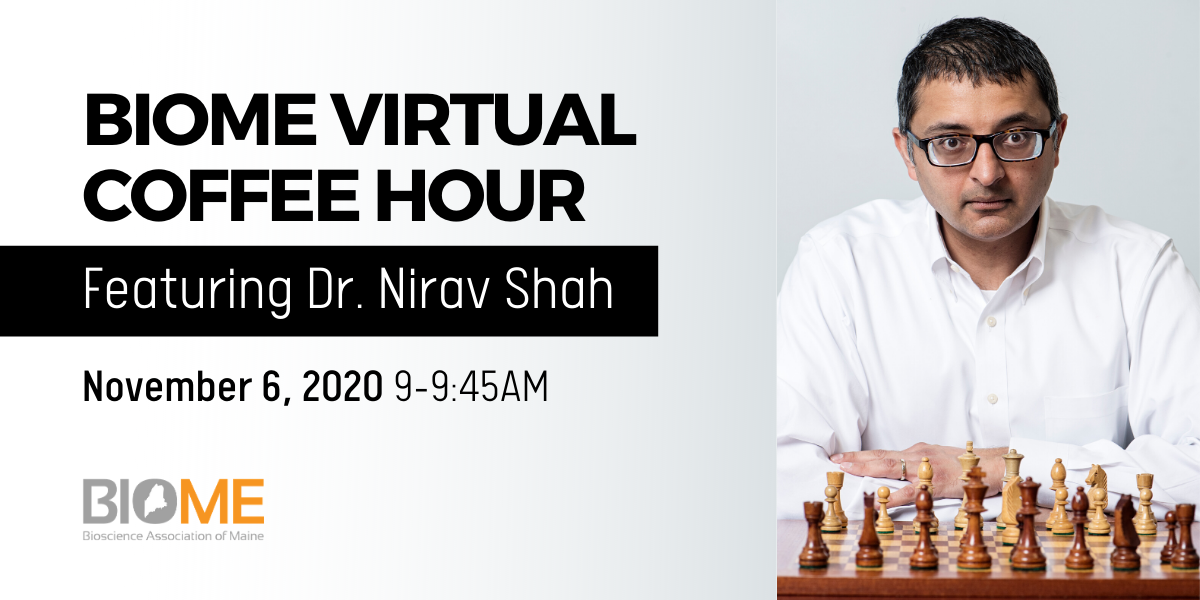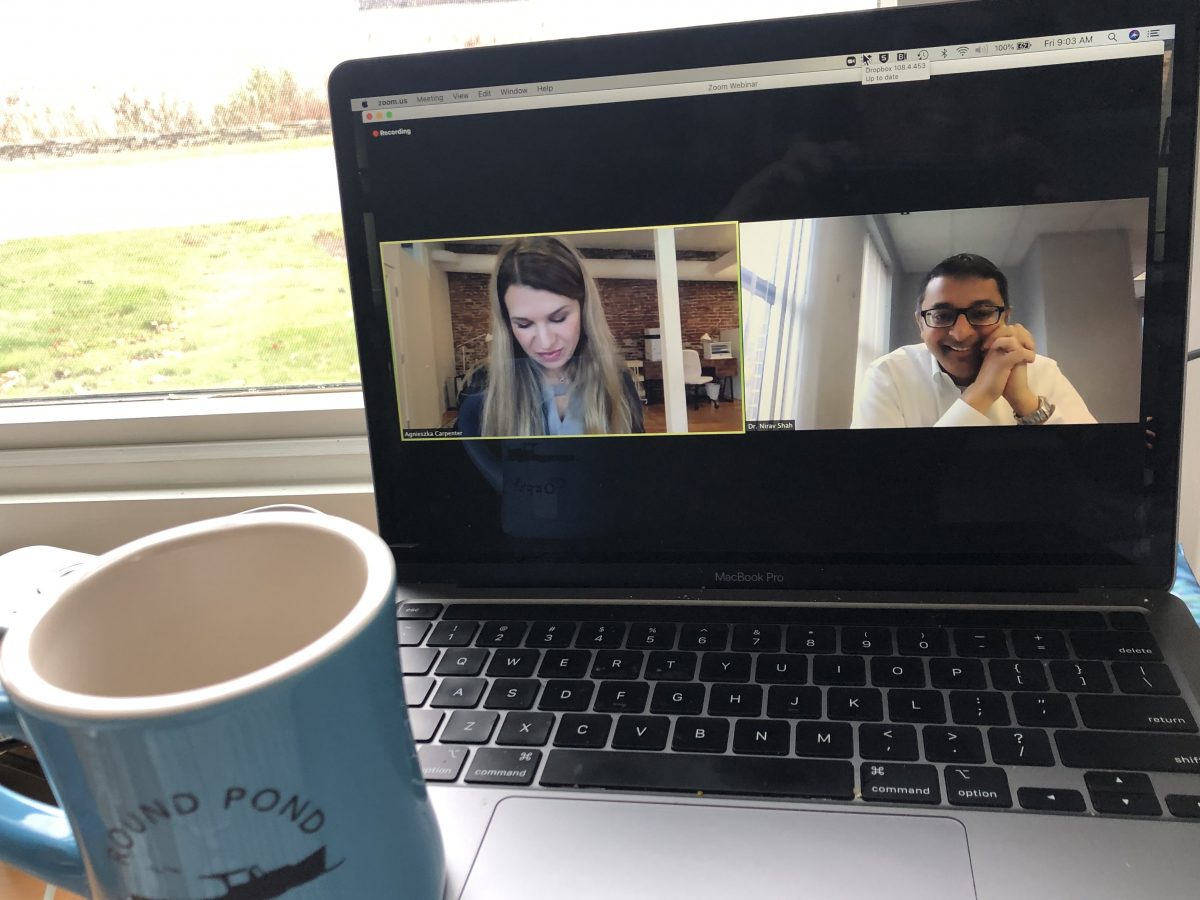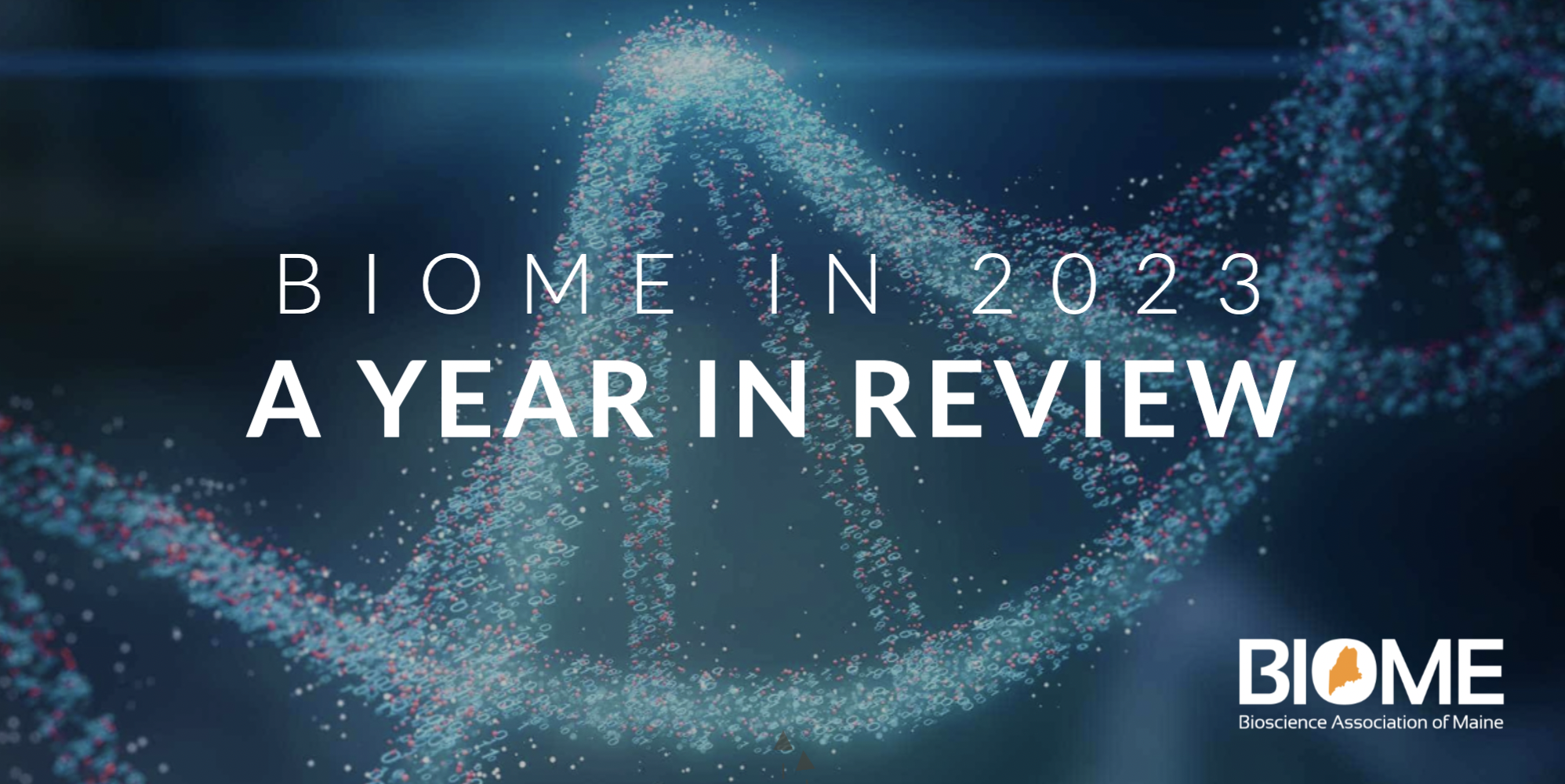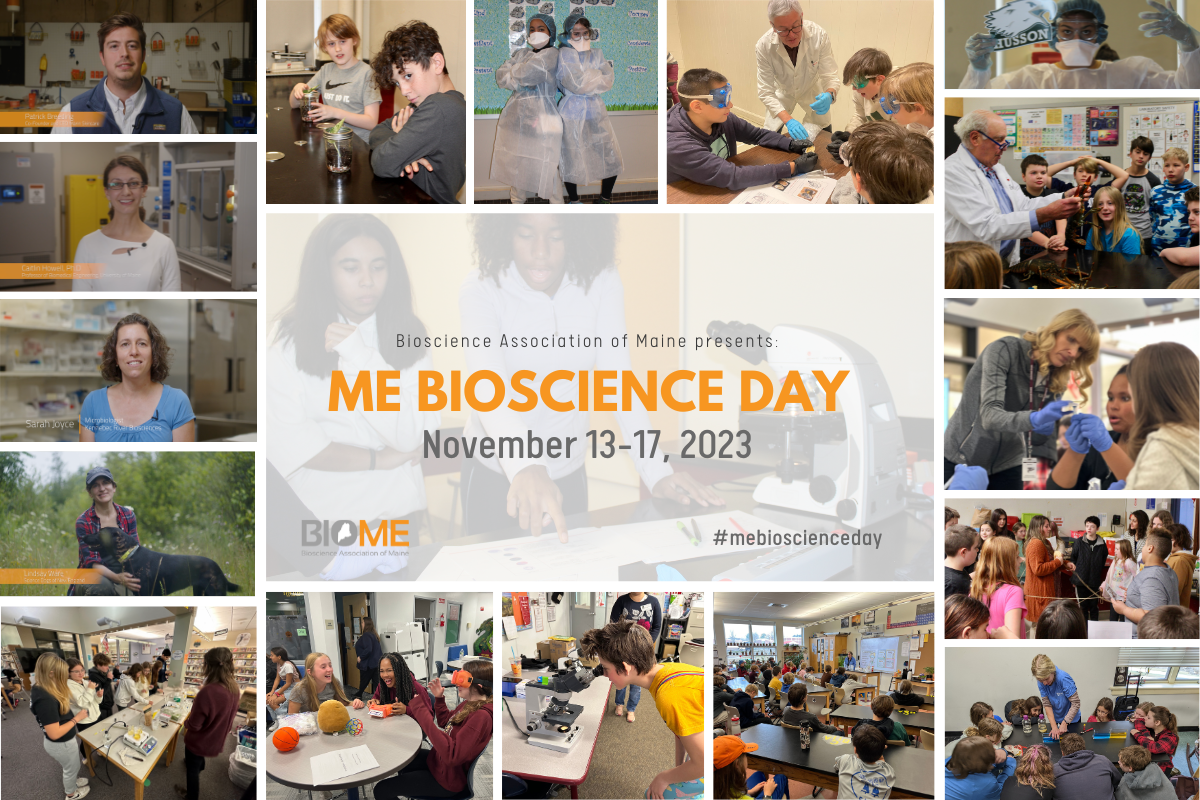Maine CDC Director, Dr. Nirav Shah, shares his thoughts with BioME and guests
BioME had the pleasure of hosting Dr. Nirav Shah, Director of the Maine Center for Disease Control and Prevention (Maine CDC), at the November BioME Virtual Coffee Hour.
Dr. Shah has medical and law degrees from the University of Chicago, and studied economics at Oxford University. He has extensive experience in the public health sector, serving as an attorney, public health economist, and epidemiologist.
During the Coffee Hour, Dr. Shah gave updates on the coronavirus, answered audience questions, and told us why he loves to live and work in Maine.


Coronavirus Updates
Dr. Shah began by stating that we’re currently experiencing exponential growth of the virus. He uses two metrics to explain this: positivity rate and volume of testing.
The positivity rate is steadily increasing, and has tripled in the last two weeks. Additionally, the volume of testing has expanded about fourfold, as there are now 590 PCR tests for every 100,000 people in Maine.
“Thus, why those changes in positivity rate are arguably even more concerning; we’re doing fourfold the amount of testing…and we’re seeing a tripling of the positivity rate,” Dr. Shah says.
Although we’re not currently experiencing outbreaks, there is community transmission occurring across the state. Today’s community transmission, which can be a seemingly innocuous get together with friends, can lead to tomorrow’s outbreaks in long term care facilities and hospitals.
Dr. Shah explained Janet Mills’ mask order, clarifying that face coverings should now be worn in all public settings where there is a chance you may encounter another person. In any type of public setting, be it a parking lot, sidewalk, or store — a face covering needs to be worn.
A vaccine is on the horizon, with a number of vaccines in clinical trials from various pharmaceutical companies. Front line workers and those with pre existing conditions will receive the vaccine first. There are many logistical and technical questions to consider with the dissemination of the vaccine, concerning its ethics and efficacy.
Audience Q&A
Through the pandemic, Dr. Shah has been working closely with Maine bioscience companies. One of the most recent innovations are the rapid tests produced by Abbott. Maine will receive roughly 400,000 of these tests by the end of 2020.
Overall, working with the bioscience community in Maine has been a great experience for Dr. Shah. “It’s been outstanding,” he says. “We’ve had wonderful success and partnership with the laboratory, research, and academic communities.” They collaborate to develop processes and he calls upon them for thought leadership.
Dr. Shah moved from Chicago to Maine relatively recently. When asked if he considers himself a “Mainer,” he replied with a smile, “I do actually. My family and I wanted to move here because the things that Maine is known for are the things that my family and I like to do — skiing, hiking, mountain biking, cycling.” Living in Maine affords Dr. Shah the ability to do these activities with his family in his free time.
Dr. Shah is praised for his impeccable communication skills, using analogies and song quotes to convey facts and statistics. Communicating about science can be a difficult task, as one must take complex information and distill it into understandable terms. When asked what advice he has for other scientists on how to speak to the public about science and medicine, he has three main recommendations.
The first key is intense preparation. He recommends rehearsing your message and to practice responding to questions.
The second key is to answer hard questions clearly. Don’t talk around the questions, even if it’s not what the audience wants to hear.
Lastly, try not to bombard people with facts. “The best thing to do is to lay out not so much what you’re talking about, but why it’s important, and always try to tether it to why it should matter to the person you’re talking to. Whether it’s through a narrative, personal experience, or asking them why they believe what they believe. Those are the ways that you can actually start to convince people of the position you’re advocating.”
Even through the pandemic, Maine still has a low rate of infection, and there are many factors that contribute to this. “Some of the reasons that Maine has done better has been because of more widespread use of face coverings coupled with really early, aggressive pushes of PPE, and widespread adoption and expansion of testing. Those all taken together lowered our rates quickly…” Dr. Shah explains. “When you’re dealing with epidemics, the better position you come into a surge with, largely predicts your ability to withstand that surge.”
This means that it is likely that Maine will be able to withstand the exponential levels of growth that we’re experiencing now, because the state took action early to mitigate the spread of the coronavirus, under the guidance of Dr. Shah.
If you missed this webinar, or you would like to share the recording, you can watch it below.



